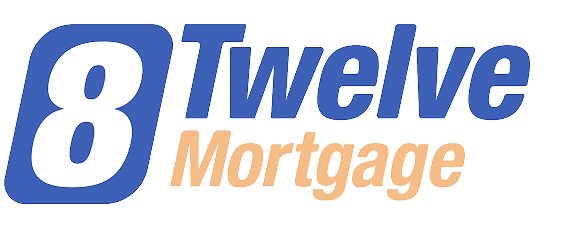
Summary
- Lenders have many requirements you must fulfill before getting approved for a mortgage, including high credit scores, big down payments, and stable income.
- Rising interest rates make the current mortgage stress test harder to pass for many Canadian investors.
- Banks might deny your mortgage because of income issues, risky properties, high debt, and other reasons.
You’ve spent months scouring real estate listings in the GTA for an investment property. Finally, you see a home tipping Pickering’s border that has potential. Strong bones, vacant possession, and an opportunity to reap some serious rental income. You gather all your documents and submit a mortgage application, but you’re met with two dreaded words: mortgage denied.
Sometimes, banks will tell you how it is before you even get that far. The truth is that it’s hard to get a mortgage in Toronto, even as an investor. You have inflation eating at your monthly income, sky-high interest rates exacerbating the stress test, and out-of-reach property prices ready to dig even deeper into your debt-to-income ratio.
If you’ve experienced a mortgage application rejection, we understand how frustrating real estate begins to feel as an investment. Is it time to sell one of your existing properties? Not necessarily! Step one is understanding potential reasons behind the rejection for your own understanding.
So what are some common reasons why lenders reject mortgage applications?
1. You failed the stress test
Aka, your income level didn’t meet the lender’s expectations.
Mortgage interest rates have skyrocketed in the last couple of years, making the stress test that much harder to satisfy. The mortgage stress test assesses your ability to pay your debts on either a 5.25% interest rate or the interest rate you agreed on with your lender plus 2% — whichever is higher.
The Bank of Canada’s prime rate (the rate you’d get with a near-perfect mortgage application) has jumped to 5.95%. It’s expected to rise to 6.45%. Meaning? Today’s mortgage stress test will assess your income against a whopping 8.45% mortgage rate.
Now, say you’re selling or refinancing and you’ve renewed without issue at your existing bank. Even if you could score more favourable terms with another lender, the stress test requirement might deter you. Jason Mercer of the Toronto Real Estate Board (TREB) points out that despite lowering default rates, the stress test is often unrealistic and hampers competition in the mortgage market.
2. Your income source isn't stable
Any new entrepreneurs in the house? We’re guessing yes, since the pandemic eventually gave rise to an “entrepreneurial boom.” Let’s say you left your executive programming 9-5 job last year, started a new real estate business, and poured all your savings into your first investment property — a low-rise apartment complex. You might make the same amount of money through rental income — even more — but most banks don’t see your income the same way.
That’s because you usually need at least two years of consistent business income and tax documents to prove it if you’re applying for a mortgage as a new investor. And even then, you might be subject to a higher interest rate. It’s a crazy market, and lenders want the reassurance of a longer income history.
Even people working as employees might have trouble getting a mortgage if they move around too much from job to job.
Don’t get us wrong — plenty of entrepreneurs own impressive real estate portfolios. In the early stages of your business, however, you’ll need to simply be patient or accept more risk.
3. Your credit score isn't high enough
Maybe you skipped one too many minimum payments on your credit card. Or, you’re a new immigrant with limited credit history. Either way, a low credit score or empty credit report hurts your chances of getting a mortgage approval.
The Canada Mortgage and Housing Corporation (CMHC) requires at least a 600 credit score to insure a mortgage. Anything less than that? You risk a rejected mortgage, or you’ll have to purchase mortgage insurance.
Still, 600 isn’t an assurance for a mortgage, either. Equifax considers good credit scores between 660-900. Additionally, real estate investors might experience a unique credit score dip due to their high debt-to-income ratios (more on that later).
4. Your property has issues
Yes, the fixer-upper might have an attractive price tag, but the bank draws a line you can’t cross. If the property you want to buy has significant structural issues or environmental risks, you might have trouble getting financing.
For example, some lenders won’t approve mortgages for certain properties along the maritime cliffs because water levels risk the home’s foundation in the long run. Similarly, lenders don’t usually lend for off-grid developments.
5. You have too much debt
Let’s say you have a rockin’ 9 to 5 as a data analyst and over ten years of solid income history. But you’re applying for a mortgage on your sixth real estate property. Sure, your other properties might bring you rental income — which is great. But then there’s the second mortgage on one that you took out for renovations, and the HELOC maxed out to cover a problematic tenant’s nonpayment of rent.
See the issue? You have too much debt — even if it’s a secured debt, lenders might be weary lending you more. They’ll compare your debt against your income to calculate your debt-to-income ratio. If it’s too high, it’s likely your mortgage application will be rejected.
What to do if your mortgage application is rejected.
Real estate investing isn’t for the faint of heart. Despite its history of quality returns, it can still be a challenging undertaking — especially in Toronto. But if your mortgage application was rejected, don’t worry. You have a few options:
- Get a cosigner. You’ll have more income and credit to boost your application, plus half the responsibilities.
- Find another source of income, or find a way to increase your existing income. This might look like renting cheap yourself and finding a tenant or roommate — or finding a side hustle.
- Wait. Apply when you have more income or less debt, or when interest rates drop.
- Consider alternative lending. You might apply for a mortgage with a credit union or private lender.
- Get a mortgage broker. These professionals will help you find multiple lending options that fit your financial scenario — just don’t jump at the first one they share. After all, mortgage brokers do make commission with certain lenders.





